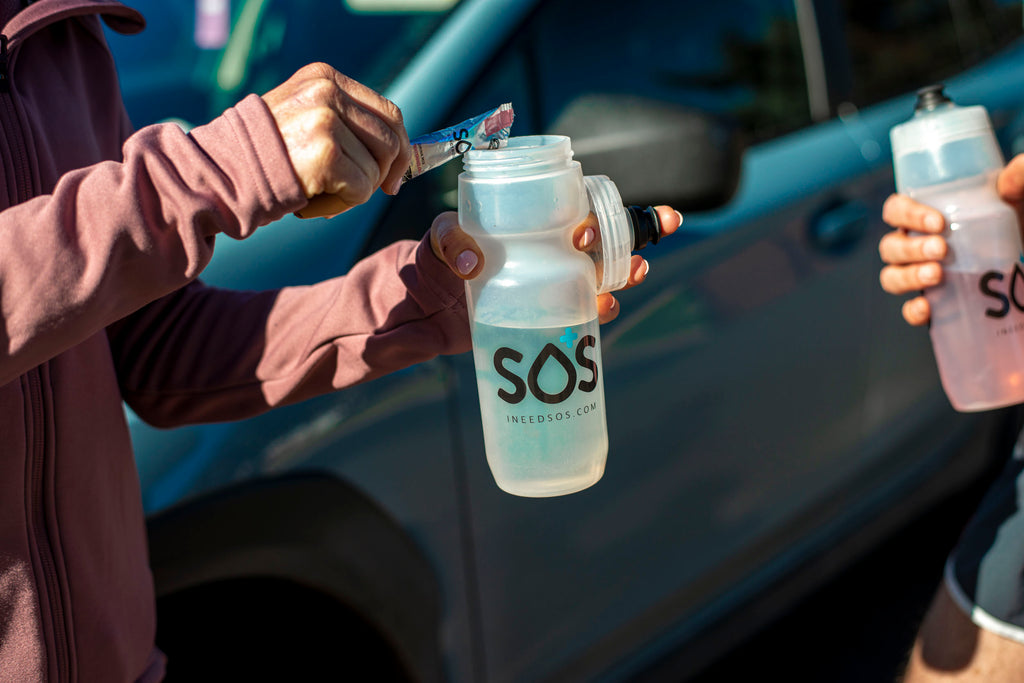
Dehydration and IBD: How Can Those Suffering from IBD Prevent Dehydration?
Share
What is Inflammatory Bowel Disease?
Inflammatory bowel disease (IBD) is an umbrella term which comprises two conditions: Ulcerative Colitis (UC) and Crohn Disease (CD). Although both have similar symptoms, Ulcerative Colitis and Crohn Disease affect different parts of the body; UC is limited to the colon (primarily affecting the mucosa, which is the superficial lining of the colon), while CD can affect any portion of the gastrointestinal tract, causing inflammation through all its layers.
What are the common symptoms of IBD?
Common symptoms of IBDs such as Ulcerative Colitis and Crohn Disease include:
- Diarrhea
- Abdominal pain and/or cramping
- Fatigue
- Blood in stools
- Weight loss
What’s the link between dehydration and IBD?
The inflammation and disruption of the colon mucosa caused by IBD affects the gut and colon’s ability to absorb water, which in turn leads to dehydration. Electrolyte imbalance is also common among IBD patients, with sodium, calcium, potassium and magnesium as the most typical deficiencies.
In more severe cases, some IBD patients may need surgery to remove a part of the bowel, requiring ostomies, which can further impede the absorption of water and electrolytes.
Persistent diarrhea, one of the most prevalent and commonplace symptoms during an IBD flare up, as well as vomiting, can also cause serious dehydration.
What is Oral Rehydration Therapy?
Oral Rehydration Therapy (ORT) was originally created to treat mild to moderate dehydration in patients with cholera. By mixing the correct amount of Sodium and Glucose (sugar), ORT activates electrolyte pumps in the gut that enhance the water absorption process. Patients with IBD have inflammation of the bowel which impairs the water absorption. ORT will aid the body's hydration mechanism.
How can those suffering from IBD prevent dehydration?
Staying hydrated is imperative for patients with IBD. By monitoring the number of bowel movements and vomiting episodes, patients with IBD should replenish what they are losing. Nausea and vomiting are common symptoms, so small sips of liquid may benefit and maintain proper hydration. It is important to be aware of the most common dehydration symptoms like dry mouth, dark urine, fatigue, headaches, etc.
How can SOS Hydration help?
Electrolytes are vital to effective hydration as they aid different organs with water absorption. Sodium levels in the gut determine how much water it can absorb. Furthermore, the colon absorbs water (up to 1.8 liters per day) by exchanging electrolytes including Potassium and Chloride.
IBD patients require chronic hydration and should take electrolyte solutions to protect against electrolyte imbalance and dehydration. SOS provides the best hydration aid with a high concentration of essential electrolytes and the lowest amount of sugar compared to other oral rehydration solutions.
Dr. Blanca Lizaola-Mayo is a Post CCT Fellow in Gastroenterology and Transplant Hepatology and co-founder of SOS Hydration. Dr. Blanca combined the World Health Organization ORT recommendations with sports physiology to create the most revolutionary ORS. SOS is a great tasting advanced ORS with the lowest sugar concentration and the most electrolytes compared to others.
TRY OUR SAMPLE PACK AND SAVE 25% - JUST ADD TO CART AND DISCOUNT WILL BE APPLIED AUTOMATICALLY

REFERENCES
- Barkas F, Liberopoulos E, Kei A, Elisaf M. Electrolyte and acid-base disorders in inflammatory bowel disease. Ann Gastroenterol. 2013;26(1):23-28.
- Mahid SS, Minor KS, Soto RE, Hornung CA, Galandiuk S. Smoking and inflammatory bowel disease: a meta-analysis [published correction appears in Mayo Clin Proc. 2007 Jul;82(7):890]. Mayo Clin Proc. 2006;81(11):1462-1471.
- Boyko EJ, Perera DR, Koepsell TD, Keane EM, Inui TS. Effects of cigarette smoking on the clinical course of ulcerative colitis. Scand J Gastroenterol. 1988;23(9):1147-1152.
- Lubran M, Mc AP. Potassium deficiency in ulcerative colitis. Q J Med 1951;20:221-232.
- Posey EL, Bargen JA. Metabolic derangements in chronic ulcerative colitis. Gastroenterology 1950;16:39-50.
- Duthie HL, Watts JM, Dedombal FT, Goligher JC. Serum electrolytes and colonic transfer of water and electrolytes in chronic ulcerative colitis. Gastroenterology 1964;47:525-530.
- Head LH, Heaton JE, Jr, Kivel RM. Absorption of water and electrolytes in Crohn’s disease of the colon. Gastroenterology 1969;56:571-579.
OTHERS
- https://www.verywellhealth.com/how-to-manage-dehydration-when-you-have-ibd-1942677
- https://www.verywellhealth.com/avoiding-dehydration-1941773
- https://www.crohnsandcolitis.org.uk/about-crohns-and-colitis/publications/dehydration
